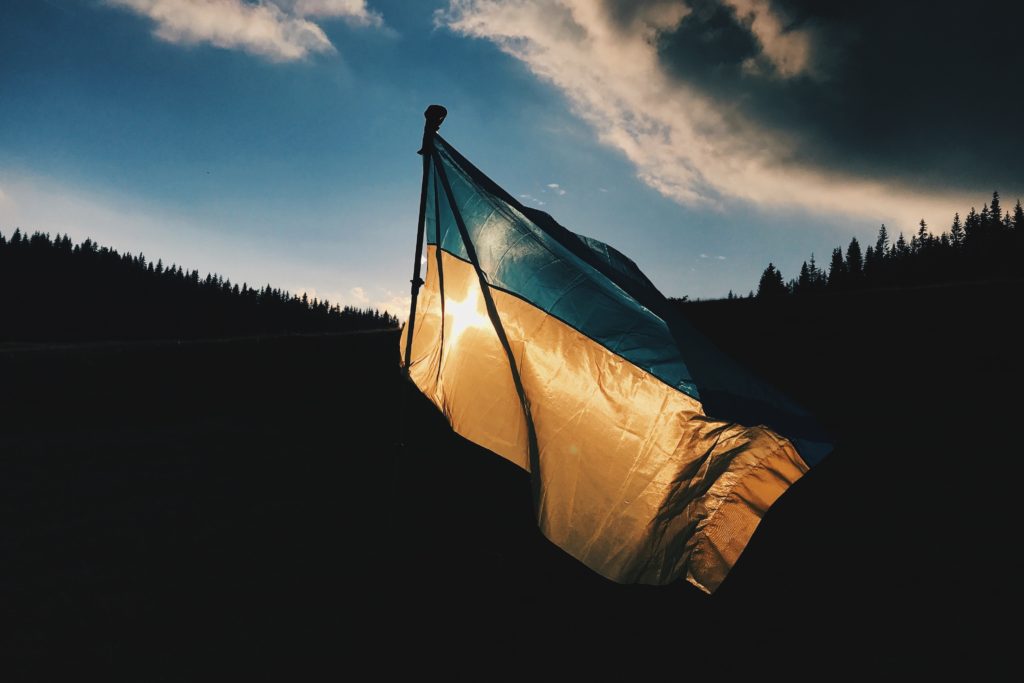
By Dr. Viktoriya Magid | “Every morning, since the start of the Russian invasion in Ukraine before my usual cup of coffee, I begin my day with checking the news, and checking in with our friends and relatives in Ukraine to see if they are still alive,” says my friend Elena who lives in the United States. “It’s a roll call of sorts. The day ends the same way.”
For Elena, me and thousands of other expat Ukranians, this is now the rhythm of life.
Nearly 3,000 civilian deaths have been recorded since the start of the invasion three months ago. Among these deaths are 378 children. The true numbers are likely much higher. One of the post offices in Mariupol has been converted into a morgue and the mass graves are growing by the day. Reports of war crimes are daily — ranging from sexual assaults of small children to execution of civilian men and women. A brutal, merciless and senseless war rages on.
“We are tired,” said my friend Vlad, a war hero and the head of his battalion, fighting in the southeast of Ukraine where most of the battles are happening. “It’s been an exhausting three months, but I very much hope that the world doesn’t get tired of our stories. The scariest thing to us is the world moving on and putting Ukraine on the background.”
“It’s been an exhausting three months, but I very much hope that the world doesn’t get tired of our stories. The scariest thing to us is the world moving on and putting Ukraine on the background.” — Vlad
Despite significant financial support and heavy weapons provided to Ukraine by the United States, as well as many other countries, Vlad says his brigade has not benefited from the funding and they continue to heavily rely on the help of local and foreign volunteers.
“We are still flying the drone that many Americans have helped us buy,” said Vlad.
While Ukraine holds back on reporting the military losses, Vlad said they just lost nearly 200 soldiers in one day from heavy artillery and shelling.
“It’s really, really scary,” he said, “Two of our men just got heavily injured from a kamikaze drone that the Russians have started using”.
At the same time, he doesn’t lose his resolve and sense of humor: “Those Russians must be high if they think they will win,” said Vlad. “We are on our land and we are determined to fight until the last man”.
He also sheds some doubt on the recent reports stating that every soldier in the Azovstal steel plant has surrendered and left the plant and that the Russians now have full control over the city of Mariupol. “Don’t believe that,” said Vlad. “The Russians are saying that ‘thousands’ of soldiers have come out and surrendered, but the Red Cross has recorded only several hundred. Most of those are civilians, medics, and the wounded. The Azov battalion is still holding on and has not surrendered,” said Vlad.
It appears Russian forces have concentrated their efforts on the previously partially occupied Donbas region (the east of Ukraine) as well as the South with recently occupied Kherson. They seem to be trying to advance their forces along the southern coast towards Odesa — a large and historic seaport much like Charleston — as well as to fully affirm their positions in the East by taking over the Lugansk region.
While the Ukrainian forces are able to hold back some of the Russian attacks and even push back in the Kharkiv region, the counterattack is not yet ready to begin. Ukrainian intelligence is reporting that a counterattack to take back the occupied regions is being planned to begin within the next four to six weeks — once the foreign weapons are received and the Ukrainian soldiers are properly trained to use the machinery. The cost of the time? Human lives.
So, how do we cope with atrocities like the war in Ukraine, without falling into despair or closing our eyes all together? Ancient warriors believed that true courage consists of staring the horror right in the face, feeling the fear, and advancing forward anyway. The moment we look away or shut down from the overwhelming feelings of this war — at that moment Putin has won. He hopes that by splitting Ukraine in half, he will also split the world in the process. And a split world is all he needs to succeed.
United we stand. We stand with Ukraine.
This commentary first was published in the Charleston City Paper. Viktoriya Magid, Ph.D., is a licensed psychologist specializing in addiction, anxiety, depression, life transitions and self actualization from her office in Mount Pleasant. Follow Magid on Instagram @drviktoriyamagid or visit her page at www.viktoriyamagid.com.















 We Can Do Better, South Carolina!
We Can Do Better, South Carolina!